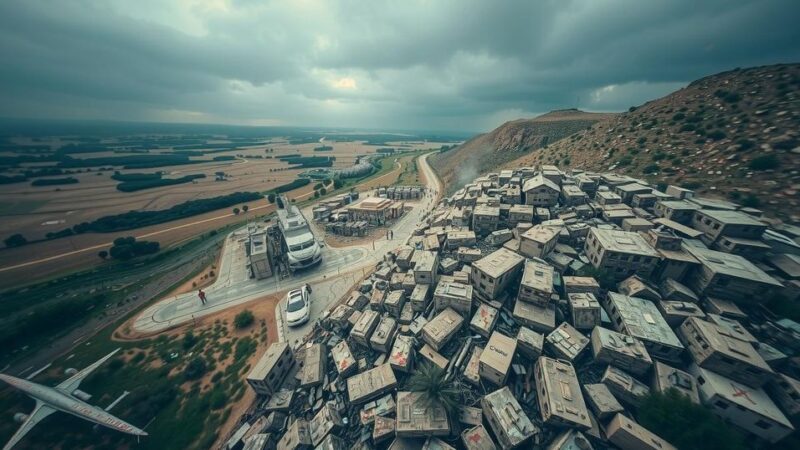Russia has vetoed a UK-backed UN resolution calling for a ceasefire in Sudan, leading to criticism from U.K. and U.S. officials regarding the humanitarian crisis caused by the civil war. The resolution, supported by 14 other members, aimed to address the ongoing conflict between the Sudanese military and RSF, but Russia’s opposition has resulted in its failure.
In a highly contentious United Nations Security Council session, Russia has exercised its veto power against a proposed resolution, led by the United Kingdom, which sought to establish a ceasefire in Sudan amidst an ongoing civil war. The U.K. and U.S. condemned this action, calling it a disgrace. British Foreign Secretary David Lammy emphasized the severity of the humanitarian crisis resulting from the conflict, which began over 19 months ago between the Sudanese army and the Rapid Support Forces (RSF), leading to tens of thousands of deaths and displacing over 11 million people. The UK-Sierra Leone draft resolution aimed for an immediate halt to hostilities and urged all parties to engage in negotiations for a national ceasefire, specifically highlighting the protection of civilians and the RSF’s violent actions in regions like Darfur. While 14 member states supported the resolution, Russia’s veto prevented its passage. Ambassadors from the UK and U.S. voiced strong criticisms of Russia’s actions, equating them to a disregard for Sudanese lives. Conversely, Russia accused the U.K. of inappropriate interference in Sudan’s internal affairs and asserted the importance of respecting Sudan’s sovereignty. In the wake of the heated discussion, Sudan’s representative expressed dissatisfaction with the resolution’s lack of clauses condemning support from the United Arab Emirates for the RSF and the classification of the RSF as a terrorist entity, arguing that both factions had committed significant human rights violations.
The civil unrest in Sudan has escalated into one of the most severe humanitarian crises worldwide. The conflict erupted in April of the previous year, igniting a power struggle between the Sudanese military and the RSF, resulting in profound human suffering characterized by widespread displacement and famine risks. The UN’s responsibility to intervene and facilitate peace has been heavily scrutinized by Sudanese activists, who argue that the international community has been slow to act. The geopolitical dynamics at play, particularly Russia’s veto against a U.N. resolution, underscore the complexity of international relations concerning Sudan.
The vehement disagreement at the UN surrounding the draft resolution underscores the intense geopolitical tensions influencing the Sudan crisis. The adverse humanitarian impact of the civil war has drawn significant international attention, while the blockade created by Russia’s veto has raised concerns about the efficacy of the UN in managing such conflicts. The contrasting narratives presented by involved nations reflect ongoing struggles over sovereignty and international intervention in domestic matters, leaving the future of Sudan’s stability uncertain amidst widespread suffering.
Original Source: www.bbc.co.uk




